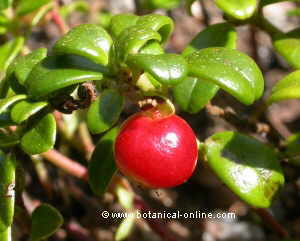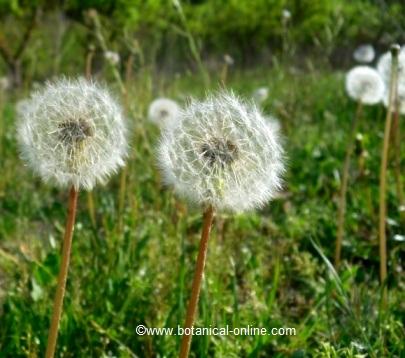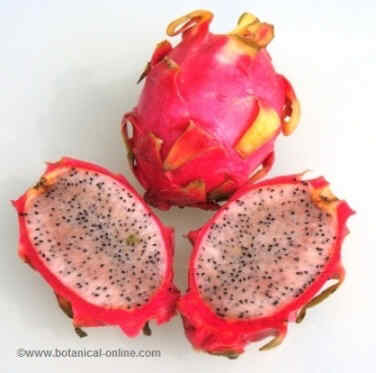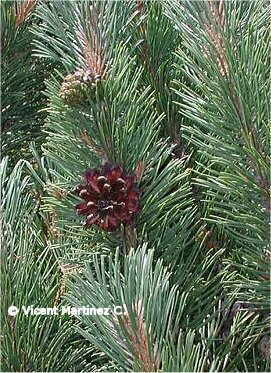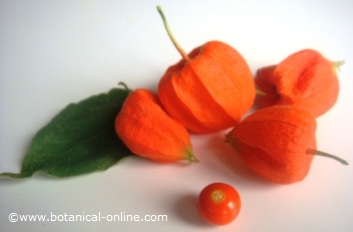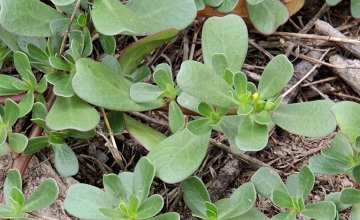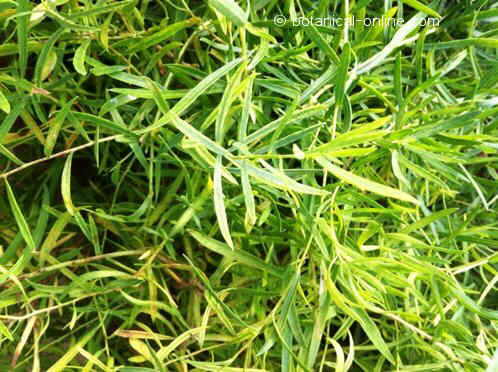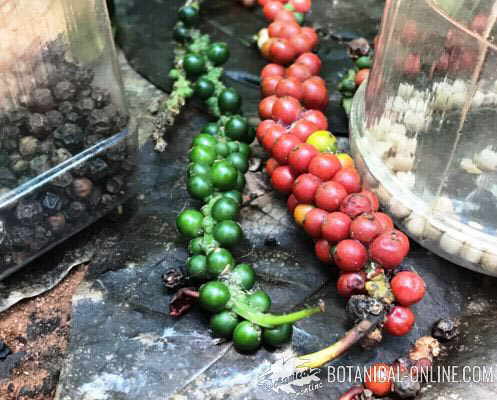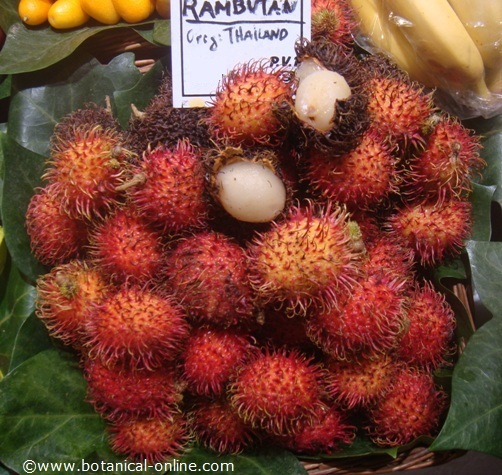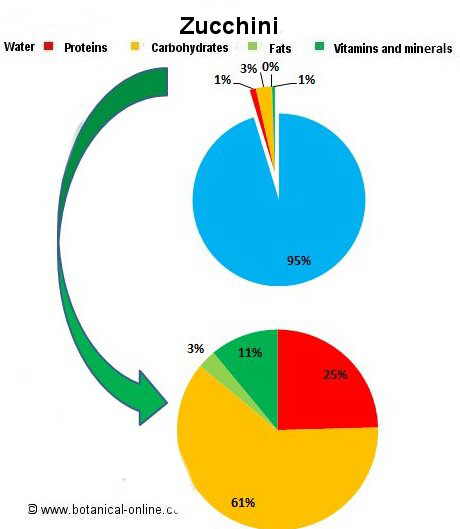Contents
Herbal treatment of cystitis
Preparations with medicinal plants for the bladder
The main function of the phytotherapy in the problem of the infections of the bladder consists of using those plants whose purpose will result in:
- Using plants with antibiotic properties to prevent the infections or that help to eliminate the microorganisms that caused the infection.
- Using antiinflammatory plants to reduce the inflammations
- Using plants with diuretic properties which increase the production of urine that will facilitate the expulsion of microorganisms.
Internal use:
Natural antibiotics for cystitis
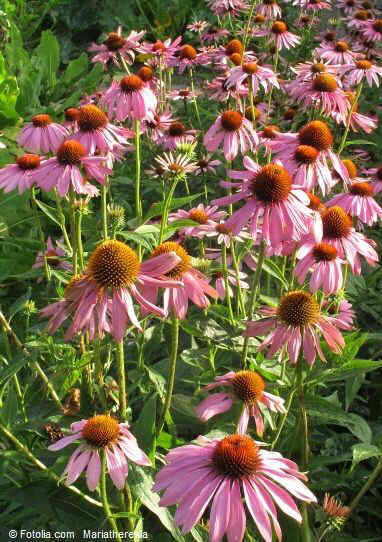
Echinacea flowers
- Echinacea (Echinacea spp) As an antibiotic, it can be used to combat urinary tract diseases, including cystitis. (800 mg daily of echinacea divided into 4 doses and 500 mg daily of goldenseal also divided into 4 doses)
Useful berries for cystitis
Some berries are very appropriate to treat cystitis because they contain a lot of tannins and anthocyanins that posses antibiotic properties. Among all of them, we can point out the following:
- Uva ursi or bearberry : (Arctostaphylos uva-ursi) (See toxicity) Uva ursi is one of the most common remedies used to treat urinary tract ailments. It is used primarily in cases of infections caused by bacteria. In order to make this possible, it is necessary to turn our urine the less acidic as possible.
This is why the treatments carried out by this plant are often combined with the ingestion of bicarbonate. By doing this, we can neutralize the acidity of urine, making it more alkaline. This treatment is appropriate for urinary tract diseases such as inflammation of the urethra (urethritis) or inflammation of the bladder (cystitis), urinary tract irritation. These herbal remedies are also beneficial for the urgent need of urinating arising from these type of diseases.
The positive effects should be attributed to arbutin that becomes hydroquinone when in contact with the intestinal flora, in addition we have to consider its high tannin content (about 15 to 20%) which acts on the secretions of pus that generate these diseases. Take one of the following preparations:
- Cold maceration for 4 hours of four teaspoons of shredded dried leaves per liter of water. Drink three glasses a day. (Avoid macerating the leaves in hot water, because this will release a high quantity of tannins)
- 20 drops of fluid extract twice a day
- Crush several leaves and take 2 teaspoons a day. (Can be mixed with honey to make it more enjoyable)
- Mixed infusion of half a spoonful of goldenrod and a half of bearberry in a glass of water for 10 minutes. A couple of cups a day.

Bearberry fruit and leaves
- Blueberry: (Vaccinium myrtillus) Like bearberry, this plant juice acidifies the urine and prevents bacteria from developing in it. Treatments based on a daily glass of blueberry juice for two or three months have been quite effective in the treatment of this disease. Likewise, cranberries (Vaccinium macrocarpon) are used for this purpose.
- Aronia (Aronia melanocarpa) Aronia juice is another berry with very beneficial properties to help prevent urinary tract infection (Drink aronia juice)
- Currants: (Ribes rubrum/Ribes nigrum) The ability of this fruit in inhibiting the growth of bacteria such as Escherichia coli, is very useful to prevent urinary tract infections and intestinal infections. Eating currant will help prevent diseases such as cystitis, urethritis, nephritis, etc.
Medicinal plants to treat cystitis
- Birch: (Betula pendula) The antibacterial capacity of this plant, combined with its anti-inflammatory properties, are very useful for combating inflammation of the bladder, produced especially for pathogenic microorganisms. It was found that the use of this plant is particularly interesting for chronic cystitis, accompanied by lack of urination.
(Make an infusion of two teaspoons of dried leaves combining equal parts marshmallow, birch and horsetail. Drink two daily cups.
Two birches in the country
- Linseed / flaxseed (Linum usitatissimum) Due to its wealth in mucilages it can help a to fight the inflammation of urinary bladder and to diminish pain. (Put a teaspoon of flax seeds in a glass of water for 4 hours. Drink a pair of glasses a day)
- Cat’s claw (Uncaria tomentosa) By encouraging the increase of immunity, cat’s claw may be of interest to treat this disease. (A couple of daily cups of the decoction for 10 minutes of a teaspoon of dried plant per cup of water) (Taking supplements of the plant according to the prospectus conditions)
- Corn (Zea mays) The decoction of two tablespoons of corn beards per cup water for 20 minutes is also useful as a stimulant for urinary tract.(Decoction of 50 g per liter of beards of corn for 20 minutes. 4 cups per day)
- Marshmallow: (Althaea officinalis) It is suitable for the treatment of cystitis. Reduces inflammation of the bladder, disinfects and softens the intense pain. (Infusion of one tablespoon of dried flowers per cup of water. Let stand for 3 hours. Two cups daily)
- Dandelion (Taraxacum officinale)
- (Infusion of dried leaves. Take 3 cups a day. The same infusion can also be done with the mixture of leaves and roots.

Dandelions with the seeds ready to be drawn by the wind
- (Infusion of dried leaves. Take 3 cups a day. The same infusion can also be done with the mixture of leaves and roots.
- Wild celery (Angelica archangelica)
- Dandelion (Taraxacum officinale) this is a plant that over stimulates the production of urine. To the extent that the common name in Catalan is ” pixallits” (= It pisses beds) refers to this aspect. Hence, its use is appropriate in cases where it is interesting to eliminate as much water as possible – dropsy and obesity – and in those where it is essential to eliminate toxins from the blood – cholesterol, uric acid, diabetes, Etc., and encourage expulsion of kidney stones (Infusion of dried leaves. Take 3 cups a day. The same infusion can also be done with the mixture of leaves and roots.
- Garlic: (Allium sativum) Being one of best natural antibiotics, the habitual ingestion of garlic can prevent the bacterial infections of the excretory system.
- Dragon fruit (Hylocereus undatus) Traditionally, it is also recommended to take pitahayas for kidney diseases such as cystitis or other infections

Dragon fruit open transversely
- Onion: (Allium cepa) like garlic, it constitutes another natural antibiotic. Eating raw onions is usually a way to boost the immune system and prevent the development of germs.
- Parsley: (Petroselinum crispum) It is one of the best diuretics – it increases urination – so it is useful to prevent stone formation, allowing the expulsion of the sand through the urine before it has settled and compact in the form of a calculus. (Decoction of one teaspoon of dried root. Let stand for one quarter of an hour and take a couple of cups a day) (Squeeze the tender plant and take a couple of tablespoons a day. juice is also sold in pharmacies and herbalists)
- Nettle: (Urtica dioica) Another plant very suitable to increase urine output so that, like parsley, it can help prevent stone formation or promote the expulsion of these when they are small.
- Pine: (Pinus sylvestris) Using this plant in the inflammation of the urinary bladder will help reduce inflammation and kill bacteria that cause the inflammation. (Decoction for a couple of minutes 4 tablespoons of buds per liter of water. Filter the prepared after having been at rest for half an hour. Drinking four glasses a day, sweetened with honey.)

Pine tree cone buds and needles
- Poplar (Populus nigra)It helps to reduce inflammation of the kidneys or urinary tract, relieves pain and reduces the infectious process (infusion of two teaspoons of dried buds per liter of water for 10 minutes. Drink two or three cups per day)
- Violet: (Odorata Viola) The inflammation of the bladder and urinary tract, the use of this plant can help reduce inflammation and expel microorganisms that cause infection. (Infusion of a half teaspoon of dried flowers per cup of water. Drink a cup daily)
- Goldenseal: (Hydrastis canadensis) (Take capsules or make decoctions of the rhizome powder of goldenseal sold in pharmacies or herbalists agree to the terms of the prospect never to exceed the stated dose) (See contraindications and incompatibilities)
![]() More information on the cystitis
More information on the cystitis

